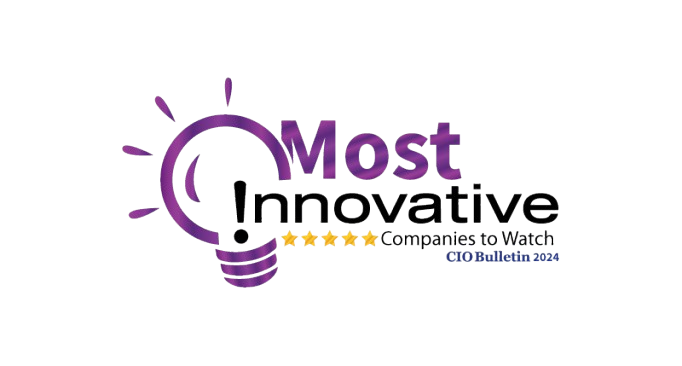Align Your Sales And Marketing Teams With HubSpot
August 6, 2022
Marketing and sales do not exist in complete isolation, and both practices are interrelated and often go hand-in-hand while converting a prospect into a loyal customer. Even if your marketing and sales teams use different tools to get their jobs done, they need to work in perfect sync with each other to close deals.
HubSpot CRM allows you to align your sales and marketing teams by allowing everyone to be on the same page. With HubSpot, you can update your marketing teams with the sales data and vice versa. The CRM platform provides a common ground for both teams to handle leads, contacts, and opportunities effectively.
HubSpot, primarily through offerings like Sales Hub Professional and Marketing Hub Professional, ensures seamless collaboration between both teams. Whenever any record or field in the database is updated while catering to a prospect/customer, members of both groups are notified in real-time, prompting them to take relevant actions without any delay or miscommunication.
From creating centralized workflows that keep your marketing and sales teams in a loop to removing human errors while sharing data between different departments, HubSpot levels the field for your marketing and sales processes.
Why Do You Need To Align Sales And Marketing Teams?
Marketing processes revolve around spreading the word about your business across multiple platforms, keeping track of the responses received, and tracking the buying journeys of potential customers. On the other hand, sales processes revolve around approaching qualified leads and prospects, encouraging them to make purchases, and handling the activities that revolve around closing deals.
However, there are no clearly demarcated boundaries between marketing and sales processes, so it is essential to align the two teams effectively. When your marketing team has generated a lead and is nurturing the same, the sales team should be aware of the same to close the deal better. The marketing data often proves very important for sales reps to interact with prospects and persuade them to make purchases.
On the other hand, the sales data allows your marketing team to manage their lead qualification processes and make marketing campaigns richer by using impressive sales numbers. The success and failure of past sales allow marketing reps to qualify and pass the leads that are most likely to be converted by the sales team.
This symbiotic relationship between sales and marketing allows an organization to build healthy relationships with its customers and leverage its ROI.
Aligning Sales And Marketing Teams In HubSpot
HubSpot helps your marketing and sales teams stay in sync by providing them with a common platform to view data regarding the ongoing deals and progress made on the same.
Here are some of the important ways in which HubSpot users can align their sales and marketing teams effectively:
Defining Common Objectives
To work in perfect harmony and sync, sales and marketing teams need to be aware of the common objectives that need to be achieved. Clearly defining these objectives while implementing HubSpot helps you set up the CRM platform and its tools per the interests of both teams.
While using HubSpot, it is advisable to create service-level agreements (SLAs) between sales and marketing teams by understanding the gaps in the processes. In most cases, the holes in one team’s functions can be filled with the help of the other. This gives you an idea about the overarching sales and marketing goals to be achieved using HubSpot.
Determining Common KPIs
Along with objectives, HubSpot allows organizations to determine the KPIs (key performance indicators) between sales and marketing teams to align them with each other. The common KPIs bound the two groups together and drove them towards the common organizational goals.
Here are some of the most common and important KPIs that need to be focused on by your sales and marketing teams:
- Qualified leads
- Conversion rates
- Net promoter score (NPS)
- The lifetime value of a customer (LTV)
- Number of site visits
- Return on investment (ROI)
- Return on ad spends
- Social media engagement
- Referral traffic
- Follower growth
Making Your Sales Team Well-versed With Lifecycle Stages
Every contact in your HubSpot CRM database belongs to a specific lifecycle stage. Your marketing team can reach prospects/customers through the most suitable channels. The lifecycle stages are primarily the forte of your marketing team, but they concern every deal that needs to be closed.
To align your sales and marketing teams, making your sales reps well-versed with the lifecycle stages is essential. This enhances their interactions with your prospects/customers while closing deals.
Here are the eight major lifecycle stages in HubSpot your sales team should know about:
Subscriber
– This is a contact that has subscribed to an email newsletter, promotional emails, etc. In most cases, subscribers are no more than email addresses recorded in the database.
Lead
– A lead is an individual who has provided you with important information about themselves, typically form filling out a form or by following a specific call to action.
Marketing Qualified Lead
– This individual has expressed an active interest in engaging with your business and is likely to convert.
Sales Qualified Lead
– This is a lead your sales team has identified as being fit to be contacted directly.
Opportunity
– This is an individual your sales reps are in an ongoing conversation with for converting them into a customer.
Customer
– A customer is an individual who has already made a purchase from your business in the past.
Evangelist
– Evangelists are people that do not belong to your organization but are dedicated to spreading the word about your business. An evangelist is a valuable referral source for generating more leads.
Making Your Marketing Team Well-versed With The Deal Stages
Just like the lifecycle stages are the forte of your marketing team, the deal stages are the forte of your sales team. These are the different stages in the automated sales pipeline in HubSpot where your leads travel before converting into customers.
Just like your marketing team tracks the journey of contact through different lifecycle stages, your sales team tracks the journeys of a lead through the different deal stages. To align your marketing and sales teams, it is advisable to make your marketing team aware of the various deal stages and the status of every stage at any time.
This is because lifestyle stages and deal stages are closely related to each other. When your sales rep creates a deal for a contact in the database, the lifecycle stage of that contact automatically gets updated to “Opportunity.” Similarly, as a contact passes through different deal stages, its lifecycle stages will keep changing until it becomes a customer.
This makes it essential for your marketing team to be well-versed with the different deal stages a lead/contact passes through and its impact on the lifecycle stages.
The Final Word
Marketing and sales processes impact each other in many ways, and the two departments need to stay aligned effectively to achieve common organizational goals. With HubSpot, you can have your marketing and sales teams updated and in sync with each other at all times to leverage your business processes.
Featured Resources
Check Our Latest Resources

Proven ROI has been recognized as one of the Most Innovative Companies to Watch 2024 by CIO Bulletin—a testament to the company’s forward-thinking approach to CRM investments and strategic partnerships. By working closely with leading CRM platforms like HubSpot, Proven ROI is revolutionizing how businesses manage customer relationships, scale their operations, and drive growth.



